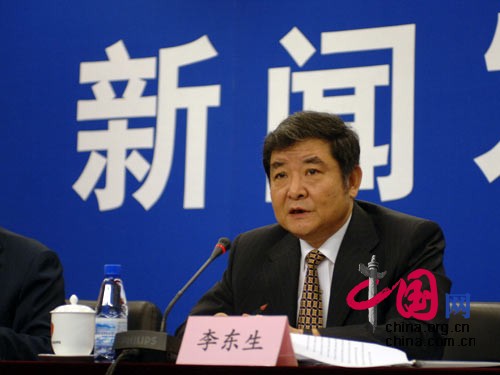| Home / Government Briefings & Spokespersons / Ministry Press Releases | Tools: Save | Print | E-mail | Most Read |
| Inspections Clean up Food Market |
| Adjust font size: |
About 152,000 unlicensed food businesses were shut down last year under a regime of tightened inspections which helped improve food safety, a senior official said yesterday. Official figures show that the industry and commerce administrations at various levels last year made 10.4 million inspections and uncovered problems in 360,000 food businesses - comprising food processors, distributors, sellers and eateries. In addition to those which were banned from operation, 4,629 businesses licenses were withdrawn, and the rest ordered to correct their practices, said Li Dongsheng, vice-minister of the State Administration for Industry and Commerce (SAIC).
He did not detail the problems which surfaced during inspections. Official figures also show that industry and commerce authorities ordered the withdrawal of about 16,000 tons of unsafe food products from the market last year. There were 63,065 consumer complaints against food, down 2.8 percent over the previous year. "Fewer complaints show that the food market is in a better shape," Li told a press conference organized by the State Council Information Office. Scandals involving substandard food were frequently reported by the media last year, such as the red-yolk salted duck eggs contaminated with an industrial dye and turbot fish containing carcinogenic residue. The issue burst into the international spotlight after tainted additives exported from China contaminated pet food in North America. Li admitted that China does have problems with food safety, but said they are not serious. "We should not exaggerate the problems and cause public panic," he said. He noted that the SAIC, responsible for the supervision of food safety in the domestic market, is vigilant and strives to protect consumers' rights. He said the administration would continue to improve the recall and withdrawal system and set up a long-term supervision mechanism. However, Ye Zhihua, a senior researcher on quality standards and testing technology with the Chinese Academy of Agricultural Sciences (CAAS), worries that the large number of small food plants and inadequate number of enforcement officers may prevent the campaign from further success. Preliminary statistics from the CAAS show that up to 80 percent of 450,000 food-processing plants are small businesses with fewer than 10 employees. Of the more than 10 million food businesses, about 97 percent are small enterprises. Ye said small food enterprises are usually dogged by poor management, technology and sanitary conditions, and are spread across the country, making supervision difficult. (China Daily June 13, 2007) |
| Tools: Save | Print | E-mail | Most Read |
| Related Stories |
|
||||
|
|
||||||||||||
|
| Links | |||||||||||
|
